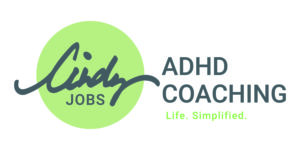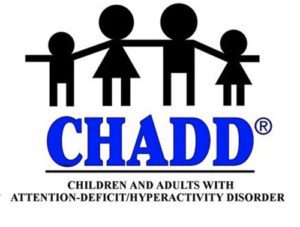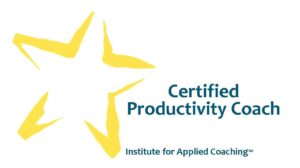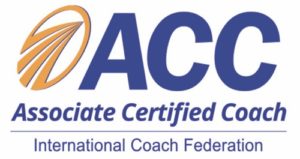Before I start a coaching partnership, we have a conversation about where they are, what they want, and what strategies they are currently using.
Through research and experience, here are the top five strategies that are professionally recognized as working, and I see the same results with my clients:
- Medication: There are two types of ADHD medication, stimulants and non-stimulants. The majority of prescribed medication falls in the stimulant category. What makes stimulant medication work? According to Keith Low of Very Well Mind, “Dopamine and norepinephrine play a key role in the areas of the brain responsible for regulating attention and executive function. Stimulant medication reduces ADHD symptoms by increasing the dopamine levels in your brain. It does this by slowing down how much dopamine is reabsorbed back into the neural network.” More dopamine, more executive function.
- Sleep: ADHD sleep problems may be a side effect of regulatory circuits in the brain. Estimates are that 25-50% of individuals diagnosed with ADHD may suffer poor sleep hygiene (of my clients, it’s closer to 75%). Individuals with poor sleep hygiene may also be more likely to suffer from depression, anxiety, hyperactivity, inattention, and difficulty processing information. Although individuals with ADHD may have a higher propensity to sleep disorders, a good night’s sleep is essential for everyone.
- Exercise: When we exercise, our brains release endorphins which regulate mood, pleasure, and pain. In addition, elevated physical activity releases dopamine, norepinephrine, and serotonin. These chemicals positively impact focus and attention, two areas that are challenges for an ADHD brain. More exercise, more executive functioning.
- Nutrition and Hydration: We are all probably inherently aware of what ADDitude Magazine reported: “Diet and nutrition impact cognition, attention, sleep, and mood.” Our bodies need fuel to operate optimally, and some foods are better than others. However, most of my clients don’t think about the value of proper hydration. According to the World of Psychology, “Water facilitates signaling pathway and nutrients delivery to the brain, removes toxins and inflammatory markers and provides energy sources for the brain, thereby improving brain function.” According to WebMD, base the amount of water consumption on your weight and activity level, but trying for between half an ounce and an ounce per pound of body weight is an excellent place to start.
- Meditation: According to the World of Psychology, “Evidence suggests that certain meditative practices improve attention and may ameliorate the symptoms of ADHD by activating brain regions implicated in both sustaining and directing attention.” And, we don’t have to spend a ton of time meditating to show results. Multiple articles indicate that 20 minutes may be the sweet spot, find what works for you, maybe starting with five minutes of meditating or meditating as you are walking. Check out this ADDitude Magazine article for some great tips.
Which of these five strategies are you currently using? Which of them can be incorporated to make your life just a little easier?
Cindy Jobs
Looking for more information?
Click here for ADHD-friendly Time Management Tools
Click here to schedule a complimentary breakthrough session.
For more helpful information, follow me on Facebook.



Former member:





